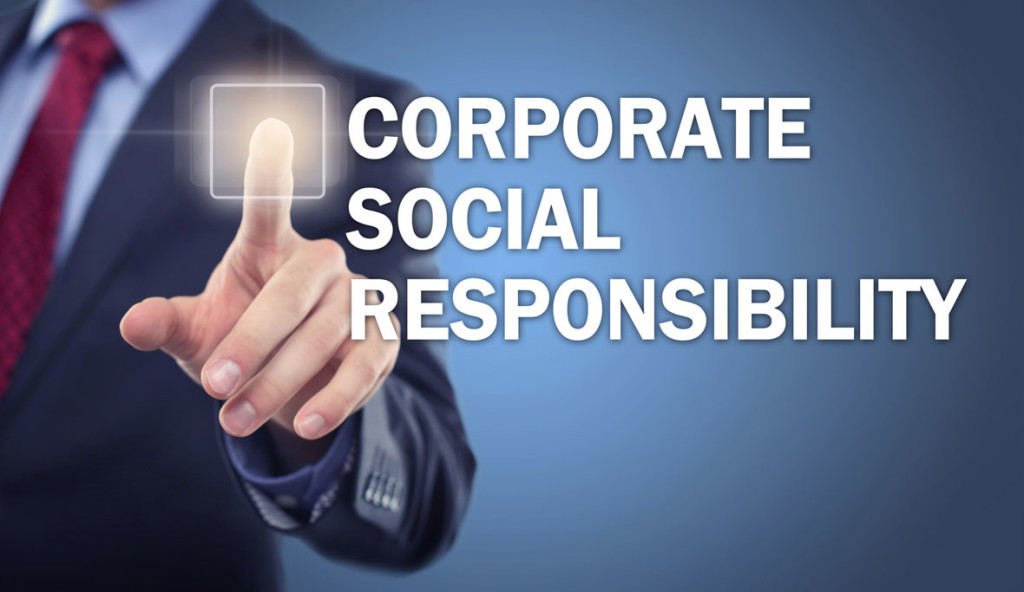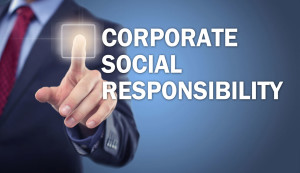Question: From your perspective, what is corporate social responsibility (CSR), who is impacted by CSR? What ecosystem is created by this interaction?
Paula Luff: If you ask 50 people, “What is corporate social responsibility?” you’ll probably get 75 different answers. For me, corporate responsibility is how companies operate.
It’s about how they identify and manage their social and environmental risks and footprint. Defined this way, quite a few people are impacted by CSR. The breadth of stakeholders is vast—it includes the company’s shareholders, employees, customers and business partners. They will all be affected by corporate social responsibility defined as operational excellence. There is great opportunity here—when done well, corporate social responsibility can create significant value for the enterprise and for society. Corporate social responsibility can drive innovation and create shared value. The ecosystem is a new approach to collaboration, and to stakeholder engagement, to leverage the potential of core business functions effectivity for both business and social good.
Question: How has corporate engagement developed into what it is today? What incited this need for action?
Luff: Early references to CSR appear in the literature in the mid-1950s. Initially, the notion of corporate social responsibility stemmed from the C-suite and eventually marketing departments, as an opportunity to be a charitable community partner and burnish corporate reputation. In the 1970s and 1980s a number of consumer-facing companies partnered with nonprofit organizations in the cause marketing space—brands benefited from the halo effect of aligning with a reputable nonprofit, and nonprofits derived some revenue from the arrangement. Overtime, stakeholder expectations of the role of the private sector have shifted and the evolution of CSR has mirrored that. Forty years ago, the business of business was business, that is necessary but no longer sufficient. While it is table stakes for companies to deliver shareholder value, they operate in a digital world where stakeholders have tremendous power to create and erode enterprise value. Increasingly, stakeholders expect the private sector to be at the table, contributing resources and thought leadership to solving the world’s greatest challenges from climate change to income inequality. No single sector has the resources to go at it alone. We are not going to make a dent in any of these issues unless we figure out new ways of working together to advance the cause.
Question: What factors are driving companies to address corporate social responsibility?
Luff: There are a number of factors, however they vary between companies and between industries. In some cases a corporate social responsibility program is developed in response to a high-profile issue the company has faced—ranging from human rights to the environment to shareholder activism. Often, this leads to an initial reactive approach to CSR in order to counter the negative reputation business impact of a particular adverse event. Other companies have realized that CSR, when done well, can be a competitive advantage with customers, with suppliers and others and take a more proactive, business-integrated approach. In 2016 people want to do business with and work for organizations they perceive as good, transparent actors. Another trend that we are seeing is increased regulation. What was once voluntary or nice to do is increasingly becoming required. This will be an interesting space to watch.
Question: What opposition has been received, and how can these obstacles to advancement be surpassed? Should CSR be mandated?
Luff: There is still a fair amount of skepticism around CSR. Many stakeholders still feel that it is little more than window dressing—or greenwashing—and they don’t believe that it can create real value for the enterprise or society. A number of high-profile events have eroded public faith in the corporations—a trust deficit that tars most and is hard to overcome. The field is also relatively new, largely voluntary, and metrics are imperfect. There are lots of different reporting methodologies and it is difficult to compare CSR performance across companies and industries. There are internal challenges as well. A number of companies still largely define CSR as charitable giving. While philanthropy is a key component in stakeholder engagement, integrating CSR into operations presents a significant, and often untapped, upside for the enterprise and society. In every company there are people who “get it,” who are CSR champions who are supportive and driving change. The challenge for CSR practitioners is to harness this internal commitment and influence the evolving corporate culture. And it is a slow process—my advice to colleagues has often been to accept that the established culture will only go so far, so fast. Don’t let perfect be the enemy of really good for right now.
As for mandates, I am of two minds. Regulations are often formulated in reaction to something as opposed in anticipation of change. While mandates might standardize disclosure, regulation often promotes a tick the box approach as opposed to one where actors strive to go beyond compliance. If CSR and sustainability are to be integrated into the DNA of the enterprise, you have to go beyond compliance. I am not sure that mandates will help transform cultures in a way that would result in this level of CSR integration. The regulation we have tends to focus on disclosure as opposed to actual performance. The consequences of poor disclosure or poor performance are unclear and seem to aim directly at reputational impact rather than at high-grading ESG performance.
That said, it would be wonderful if we could all agree on a more standard set of metrics and reporting structure that would be meaningful to all stakeholders. For investors, consumers and businesses, there needs to be some way to compare performance over time between companies and across sectors. I’m not sure if or how regulation would address that issue.
Question: How can a company integrate these practices into their daily operations and future planning?
Luff: CSR can help companies anticipate stakeholder trends that can impact their business. It can help leaders with horizon scanning, business strategy and enterprise risk assessment. Social and environmental risks impact the enterprise like any other and should be managed with the same rigor as financial, operational and other enterprise risks. An obstacle to integration that gets little play is the focus on short-termism. CSR by definition is a long game—we need to give management incentives and breathing room to focus on the long term, yet we are tied to a culture that focuses on quarterly results and projections. Perhaps Instead of mandating disclosure, we need to move a little further away from this laser focus on short-term quarterly results to a framework that gives companies, management and stakeholders room to really take the long view.
Paula Luff is founder and CEO of Viso Strategies Corporation, a sustainability advisory firm based in New York. From 2007 through 2015, Luff was Vice President of Corporate Social Responsibility for Hess Corporation, where she established and led the global Social Responsibility and Philanthropy functions for the company. Prior to joining Hess, she was senior director of Global Philanthropy for Pfizer Inc. where she set strategy and led the teams that developed flagship programs in global health for the company and its foundation. She also represented Pfizer on philanthropy and global health issues with the media, public officials, bilateral and multilateral organizations and other external stakeholders.
This article was taken from here.

